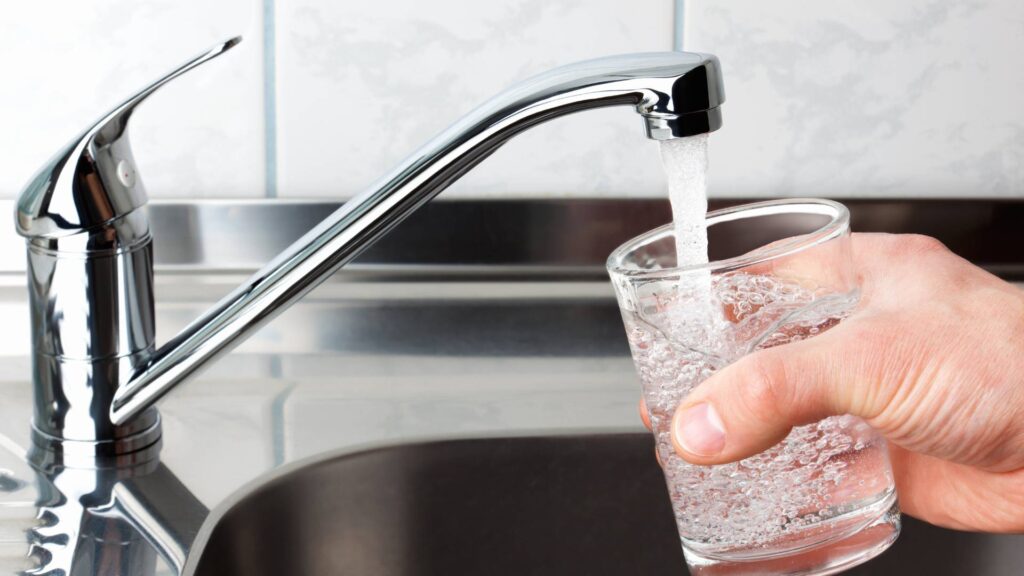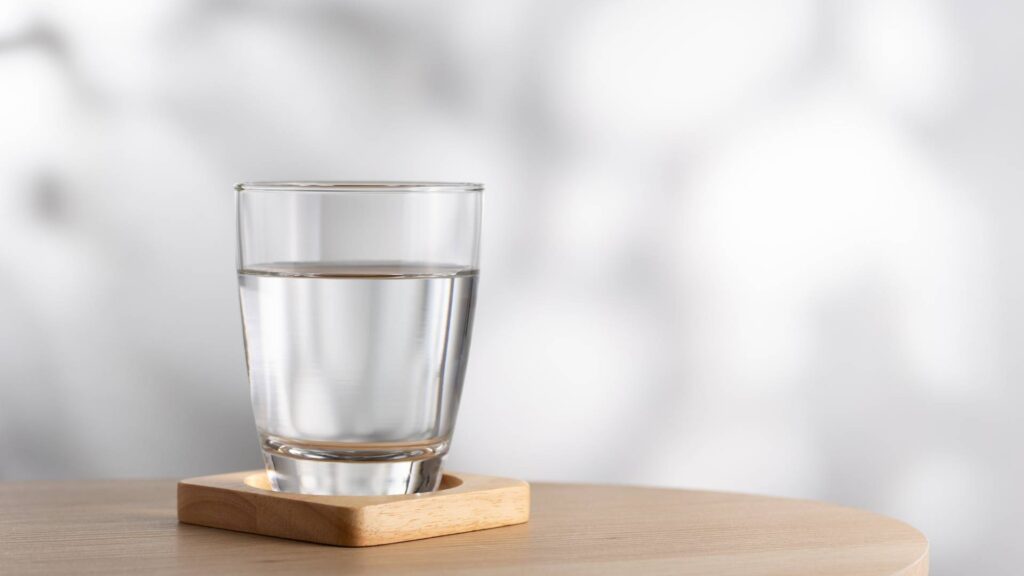Dubai, a bustling city known for its skyscrapers and luxury, offers many amenities, including safe drinking water.
Many wonder if it is safe to drink the tap water here.
Yes, tap water in Dubai is considered safe to drink, meeting international standards for health and safety.
The city ensures thorough water treatment and quality control, making it a reliable choice for residents and visitors alike.
Despite the water’s safety, some residents still prefer bottled water. This preference often stems from concerns over potential contaminants or the taste and smell influenced by plumbing systems.
Yet, the government actively monitors and regulates the water supply to prevent any health risks. Understanding these measures can help clarify any doubts.
For those curious about the city’s water quality, a deeper exploration into the treatment processes and home maintenance tips can provide peace of mind.
Maintaining plumbing systems is an effective way to ensure water remains uncontaminated.
Key Takeaways
- Dubai’s tap water meets international safety standards.
- Bottled water is popular even though tap water is safe.
- Regular plumbing checks can enhance tap water safety at home.

Overview of Drinking Water Quality in Dubai
Dubai’s tap water is considered safe to drink and meets several stringent standards. Compliance with regulations ensures that the water is free of harmful substances. It originates from desalinated seawater, which undergoes extensive treatment.
Regulations and Standards
Dubai’s tap water must adhere to the UAE’s GSO 149 standards, ensuring safety and quality. These guidelines check for the absence of harmful bacteria and pathogens.
Water must also be free of any substances that affect its taste, color, and odor.
Regular monitoring is conducted to maintain these standards. The standards align with international guidelines like those from the World Health Organization.
In 2020, restaurants in Dubai were encouraged to serve tap water, aimed at reducing plastic usage. This initiative was supported by enforcing regular water quality tests at dining establishments.
Source of Tap Water
Most of Dubai’s tap water comes from desalinated seawater. Desalination plants remove salt and other impurities, making the water suitable for consumption.
This treated water is then distributed through a network of clean pipes to ensure no contamination occurs during delivery.
Desalinated water is mixed with groundwater to enhance its mineral content. Groundwater adds essential minerals lacking in pure desalinated water.
This blend helps maintain a balanced pH level and ensures the water is not only safe but also meets taste preferences. The desalination process is crucial in Dubai, given its arid climate and limited freshwater resources.
Potential Contaminants and Their Health Impacts
Drinking water can contain various contaminants that might affect health. These contaminants include microbial pathogens, chemical toxins, and heavy metals. Each type can pose different risks, emphasizing the need for effective water treatment and monitoring.
Microbial Pathogens
Microbial pathogens, such as bacteria, viruses, and protozoa, are common in untreated water sources. If not properly treated, these microorganisms can cause diseases like diarrhea and cholera. E. coli is a well-known bacterium often used as an indicator of water contamination.
Water treatment plants use chlorine and other disinfectants to kill these germs, reducing the risk of illness. In Dubai, tap water undergoes strict treatment processes that help ensure it remains safe from these pathogens.
Chemical Toxins
Chemical toxins in water can result from pollutants like pesticides, industrial chemicals, and household waste. Some of these chemicals can have long-term health effects, potentially impacting the liver, kidneys, or endocrine system.
The Environmental Protection Agency (EPA) sets limits for such contaminants. The World Health Organization also provides guidelines to manage these risks effectively.
Dubai’s water treatment facilities aim to reduce these chemicals to safe levels.
Heavy Metals
Heavy metals such as lead, mercury, and arsenic can enter water supplies through natural deposits or from industrial waste. Even small amounts can be harmful, leading to serious health issues like kidney damage or developmental delays in children.
Water quality standards focus on keeping these contaminants well below harmful levels. In areas like Dubai, regular testing helps ensure heavy metal concentrations remain within safe limits, protecting public health. Some home filtration systems can also provide an extra layer of safety against these metals.
Water Treatment Processes
Dubai’s tap water is safe to drink due to advanced treatment processes. These processes ensure that water meets high quality standards by removing impurities and pathogens. The main steps include desalination, filtration, and disinfection.
Each stage plays a crucial role in delivering clean water to residents.
Desalination
Dubai primarily uses desalination to transform seawater into drinkable water. This method involves removing salts and minerals from seawater.
The city employs the latest technologies, like reverse osmosis, to efficiently process large amounts of water. Desalination plants operate continuously to meet the region’s high demand for freshwater.
By using these advanced techniques, Dubai ensures a steady supply of safe drinking water. The process also includes regular monitoring to maintain quality.
Filtration and Disinfection
Filtration and disinfection are essential in maintaining the purity of Dubai’s tap water. Filtration removes particles such as sand and debris, while disinfection eliminates any potential pathogens.
Chlorine is commonly used for disinfection, given its effectiveness in destroying harmful bacteria. The water undergoes stringent testing to ensure that no contaminants remain.
These steps are part of a comprehensive treatment strategy to protect public health. Regular maintenance of infrastructure is conducted to support these efforts.

Comparative Safety: Tap Water Versus Bottled Water
When comparing the safety of tap water and bottled water, both have their merits and concerns. Tap water in many cities is subject to stringent regulations. For instance, in Dubai, tap water is monitored by local authorities to ensure it meets set safety standards.
Bottled water, on the other hand, is often seen as more convenient. However, it may not always guarantee superior quality. Some bottled water is simply filtered tap water. It is crucial to check the labels for information about the source and treatment process.
Contamination Risks:
- Tap Water: Generally safe, but risks can arise from old pipes or individual building infrastructure.
- Bottled Water: Might contain microplastics if in plastic bottles. Storage conditions can also affect purity.
Cost and Environmental Impact:
- Tap Water: Typically more affordable and and has a lower environmental footprint. Using reusable bottles can further reduce waste.
- Bottled Water: Can be costly and contributes to plastic waste. Recycling can mitigate some impact, but not all bottles are recycled efficiently.
Each water type has particular strengths and vulnerabilities. While bottled water might seem safer due to packaging, regulations for tap water are often stricter. It’s essential to consider local conditions and environmental concerns when making a choice between the two.
For more details on tap water safety standards, you can visit articles like the one on Healthline which provides additional insights into this topic.
Public Perception and Bottled Water Consumption
In Dubai, the preference for bottled water over tap water is common. Many residents believe bottled water is safer and of higher quality than tap water. This perception greatly influences their purchasing decisions.
Reasons for Preference:
- Taste: Some people think bottled water tastes better than tap water.
- Convenience: Bottled water is easy to find and carry, making it a handy choice for many.
- Perceived Safety: Concerns about tap water quality lead many to bottled options.
Studies indicate that similar trends are seen in other regions. For instance, research shows American consumers often choose bottled water due to perceived health risks and quality concerns with tap water, despite these perceptions not always aligning with reality.
In places like Cleveland, some studies reported only a small percentage of bottled water meeting higher quality expectations. You can find further insights in research about U.S. consumers and their perceptions.
A Global Perspective:
Similar patterns are observed globally. In some areas, factors such as income, ethnicity, and quality trust play roles in bottled water consumption. This has been examined in studies on how consumption patterns vary along lines of race and income in the U.S., which can be explored further here.
Government Initiatives and Public Health Efforts
Dubai has taken significant steps to ensure the safety and availability of tap water for its residents. The Dubai Can initiative is a key part of these efforts.
Launched by the leadership of Dubai, this program promotes the use of refillable bottles to reduce single-use plastic.
Public water stations have been set up across the city, encouraging people to refill their bottles with safe, clean tap water. The initiative has placed about 50 water stations in strategic locations, helping residents and visitors access free drinking water.
Moreover, health officials in Dubai have consistently assured the public that the tap water is safe to drink. According to the Conformity Affairs Department, tap water in the UAE meets safety standards. This claim is supported by ongoing testing and monitoring.
Key Points:
- Dubai Can Initiative: Reduces reliance on single-use plastic.
- Public Water Stations: 50 stations available.
- Safety Assurance: Tap water regularly tested for quality.
These actions reflect Dubai’s commitment to public health and sustainability, ensuring residents have access to safe and eco-friendly water solutions.
Tips for Ensuring Water Safety at Home
Checking water safety at home is crucial for health.
One way to maintain safety is to use water filters. These can remove contaminants and improve taste. It’s important to select the right filter for the specific contaminants in your area.
Boiling water is an easy method to kill bacteria and viruses. To be effective, bring the water to a rolling boil for at least one minute. This technique is useful during power outages or emergencies.
Another useful tip is to regularly clean faucets and showerheads. Germs can build up over time. Cleaning with vinegar or bleach can help reduce these germs.
Installing a thermostatic mixing valve can protect from burns when setting water heaters at temperatures between 130°F-140°F to kill germs like Legionella. Keeping water heater settings within this range is an effective preventive measure.
Receiving a yearly water quality report from your utility is also vital. This report will inform about the levels of chemicals and any past safety violations. More information on these reports can be found on the CDC’s website.
Lastly, consider checking for hard water in the home. Water with high levels of calcium and magnesium can affect appliances and pipes. Understanding water hardness levels can help in choosing appropriate treatment methods.
Conclusion
Tap water in Dubai is generally safe to drink. The water meets standards set by UAE authorities and international guidelines.
It goes through a desalination process, which removes harmful substances. Some people in Dubai choose to boil tap water or use filters to ensure safety.
These steps can help make sure the water is free from any minor impurities. Most residents and visitors accept Dubai’s tap water as safe.
However, the taste and mineral content might not meet personal preferences for everyone. Some people may prefer bottled water for this reason.
In Dubai, government agencies like DEWA regulate tap water quality. They ensure that the water meets all required safety standards.
This regulation adds a layer of assurance for those relying on tap water.

